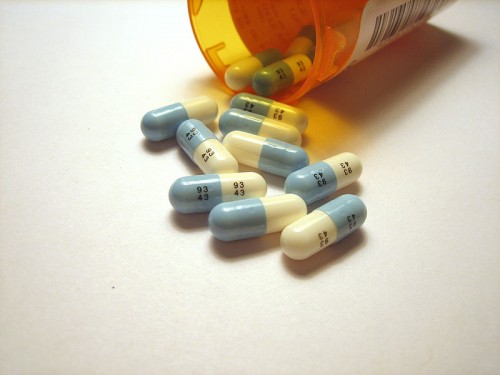the normative influence of prescription drugs – why do placebos work so well?
 Inquiries as to whether many of the drugs that millions of Americans take are any more effective than say, a sugar pill, or any other placebo pill used in clinical trials are on the rise. Sadly, especially with many anti-depressants, it does not seem as though there is any clear evidence that the drugs are more effective than the placebos and this may also be an issue in non-psychotropic drugs. What if a blood pressure medication wasn’t any more helpful than a sugar pill? What if the drug you take for panic attacks wasn’t really preventing them? But my purpose isn’t to ask why the medicines don’t work as well as they should and often claim to (though someone should certainly be concerned with this), but rather to describe some of the cognitive reasons that might allow us to think a drug is working to the extent that it has an actual, physical effect on the body or the mind. Why, for instance, could we feel better on anti-depressants even if the re-uptake of Serotonin or Norepinephrine is not what’s actually making us less sad? One (of many) possibilities is the power of suggestion and, perhaps, what social psychologists call normative influence.
Inquiries as to whether many of the drugs that millions of Americans take are any more effective than say, a sugar pill, or any other placebo pill used in clinical trials are on the rise. Sadly, especially with many anti-depressants, it does not seem as though there is any clear evidence that the drugs are more effective than the placebos and this may also be an issue in non-psychotropic drugs. What if a blood pressure medication wasn’t any more helpful than a sugar pill? What if the drug you take for panic attacks wasn’t really preventing them? But my purpose isn’t to ask why the medicines don’t work as well as they should and often claim to (though someone should certainly be concerned with this), but rather to describe some of the cognitive reasons that might allow us to think a drug is working to the extent that it has an actual, physical effect on the body or the mind. Why, for instance, could we feel better on anti-depressants even if the re-uptake of Serotonin or Norepinephrine is not what’s actually making us less sad? One (of many) possibilities is the power of suggestion and, perhaps, what social psychologists call normative influence.
The concept of normative influence, in its most basic form, allows us to understand why one might conform to norms in order to be accepted or praised by others. However, it might also help to explain one of the reasons why placebos make people feel better. When one is given a medicine with a particular purpose, might one not feel as though the response the researchers, doctors or pharmaceutical reps are looking for is a positive response or the dissipation of symptoms? Of course, there is range of other reasons for which one might respond to a placebo – perhaps, in the case of something like depression, the relationship between doctor and patient itself may be comforting. Perhaps when given a heart medication, a patient, realizing her own possible fate, may also begin to exercise and eat better during the drug trial yet attribute improvement to the medication. Perhaps chronic heartburn was solved by changes in diet rather than prescribed medications. These are all possibilities as are many other explanations, but it is worth considering that, when handed a prescription, especially for a psychiatric condition, the feeling that one is supposed to feel better and of wanting to “impress” or just satisfy the doctor may influence patients to unintentionally make themselves feel better. Classic social psychological studies inform us that we generally seek conformity to expectations – no one wants to be criticized. Patients, as they would in any other life situation outside the realm of medicine, likely want to please their doctors and also family members and friends who might also have high hopes for a drug. Likewise, just the power of medicine in contemporary society puts doctors and/or medical researchers in a positions where patients would assume improvement because these professionals are considered legitimate sources of information and are associated with the belief that the medicine will work and make things better. This may go beyond a mere desire to please or conform, but may further be an example which kinds of situations make us more or less likely to conform. Medicine and doctors as purveyors of drugs and medical knowledge have power and influence. We are supposed to trust them. They should know more than the patient. Therefore, the pills they prescribe should work. And we may not “want” to challenge this impression either because it is threatening to us as believers in the system or because we value and or fear the response of the doctor. In any case, the reasons for which medicines or placebos might work may have more to do with social factors than biological or chemical ones, especially in the case of psychotropic drugs, but perhaps in the case of many other medicines as well.
![]() The Growing Power of the Sugar Pill, NPR
The Growing Power of the Sugar Pill, NPR
![]() Normative Influence. In the Blackwell Encyclopedia of Social Psychology.
Normative Influence. In the Blackwell Encyclopedia of Social Psychology.







Great post on how social factors might influence health as much as biochemistry. A sociological analysis of science will be essential to determine how to best treat patients.
Keri